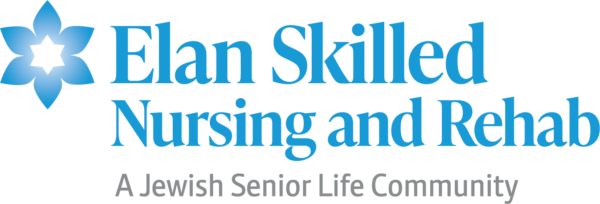An old saying states: “living well is its own reward.”
A modernized version of that saying, based on nutritional studies and focused on the same goal, is: “eating well is living well.”
Many of us grew up in a world that revolved around meals with fried and processed food topped off with a soda. But times change and, even if you’re adapting to new eating habits later in life, it’s well worth the commitment.
February is American Heart Month, which raises awareness about heart health and how we can lower their risk for heart disease. Elan Skilled Nursing and Rehab encourages a healthy diet. The effort will lead to living well.
Healthier eating habits will make you feel better-both mentally and physically and lead to better overall health. The biggest challenge is often getting started. Starting slow with initiating a few good habits now, will make it easier to stick with it over the long term.
- Educate Yourself
A healthy eating routine is important at every stage of life. Eating a variety of fruits, vegetables, grains, proteins, dairy, carbohydrates and fats is crucial to ensuring healthy eating. Daily food group targets are different at each life stage. One simple and easy-to-use resource that can be helpful to learn healthy eating behaviors is MyPlate. Produced by the US Department of Agriculture Food and Nutrition Service, MyPlate is a visual guide to filling your plate based on the various food groups. Available at MyPlate.gov is the opportunity to individualize your personal plan based on your age, sex and physical activity.
- Cook for yourself
Processed foods and the meals you get at restaurants are often high in unnecessary salt and sugar, but it’s easy not to think about or realize what you’re eating when someone else is doing the cooking. The best way to regulate your intake and manage the ingredients is to cook your own meals.
Making your own meals takes time, but it gives you power over what you eat. Whether or not you are an experienced cook, it’s not hard to make healthy meals. You can find loads of free recipes online and search engines make it especially easy to identify those that meet your dietary needs.
- Eat more fruits and vegetables
Eating a diet rich in fruits and vegetables can reduce your risk of heart disease, Type 2 Diabetes, obesity, and other illnesses. At least 5 servings of fruits and vegetables each day is what is currently recommended by many health agencies. However, few adults meet these recommendations. According to the Centers for Disease Control, only 9% of adults eat the recommended amount of vegetables and 12% eat the recommended amount of fruit.
Taste buds can change over time. It’s entirely possible for a person who spent most of their life hating Brussel’s Sprouts because of a childhood experience only to find they actually love them when they try them many years later. The first step to eating more fruits and vegetables is identifying which ones you like to eat. Start by increasing your daily servings of your favorite fruits and vegetables.
Once you are consistently consuming your recommended number of daily servings, it’s time to get adventurous and test your mature taste buds. Seek out recipes that involve fruits and vegetables you haven’t tried before or consumed in a long time. The more you experiment, the more you’ll learn about which healthy ingredients you’ll get the most excited to eat.
- Know what you like and like what you know
One thing that keeps many people from eating healthier is the idea that it takes all the fun out of eating. Our culture has a tendency to conflate “healthy” with dull and flavorless. That doesn’t have to be the case!
Once you get into the habit of cooking more recipes at home, you’ll start to get a feel for the types of healthy food and recipes you find genuinely tasty. Add a touch of spice such as fresh or dried herbs, basil, oregano, and parsley. Limit your salt intake as it can affect blood pressure and fluid retention. It could be that you love using extra garlic or that you really like recipes that mix savory and sweet flavors.
Developing better eating habits doesn’t mean forcing yourself to eat things you don’t like. But you may try a few recipes you don’t love on the path to figuring out which ones do taste great to you.
- Give healthy substitutions a chance
Many recipes taste just as good if you use olive oil instead of butter. Some sweet recipes work well with applesauce or honey as the sweetener instead of sugar. Try to make your favorite recipes healthier. You don’t know what will work until you give them a try and you might find you like some old standards better the healthier way.
- Use smaller plates and bowls
It’s such a small thing, but a study by Cornell University shows it makes a difference. When we use larger plates and bowls for our meals, we eat more, plain and simple. Trading out your big plates and bowls for smaller ones is an easy way to reduce your regular portion size without feeling like you’re giving anything up.
Note: This recommendation is for seniors who struggle with being overweight or the possibility of becoming so. If you or a loved one instead struggles with senior loss of appetite, then this is a tip to skip.
- Cut down on – or quit – sodas
A Gallup.com study reports that those of us in the U.S. drink 44 gallons of soda a year. That’s a lot of sugar and empty calories. Worse, high soda consumption, even diet soda, has been linked to type two diabetes, a higher risk of heart disease, and obesity.
If you have a soda habit, set a goal of reducing the number you drink. Once you are on the road to reduction, keep reducing until you eliminate soda completely. Replace soda with healthier drinks, like unsweetened tea or carbonated water. Adding lemon or lime to your water is another healthy way to add flavor to your beverages.
This one change can make a significant difference to your health.
- Drink more water
You’ve probably heard the advice to drink plenty of water as often as you’ve heard the advice to eat healthy. Although there is no recommendation for how much plain water everyone should drink daily, there are recommendations for how much daily fluid intake should come from food and beverages. These recommendations vary by age, weight, sex and activity level.
Most of your fluid needs are met through the water and other beverages you drink. You can get some fluids through the foods that you eat—especially foods with high water content, such as many fruits and vegetables. Drinking water is one good way of getting fluids as it has zero calories. Plain coffee or teas, sparkling water, seltzers, and flavored waters, are low-calorie choices that can be part of a healthy diet. Low-fat or fat-free milk or 100% fruit or vegetable juice contain important nutrients such as calcium, potassium, or vitamin D. These drinks should be enjoyed within recommended calorie limits.
Dehydration is a real concern for seniors – people between the ages of 85 and 99 are admitted to the hospital for dehydration six times more often than other adults. The consequences for not refilling your glass at the tap often enough can be serious.
This is a relatively easy problem to fix though. Make sure you keep a large glass or bottle of water nearby throughout the day. You can even mark a bottle with time-oriented goals to give yourself extra incentive to drink throughout the day.
If you or your loved one are considering making the move to a senior living community, make sure you pay attention to the dining services offered and the nutritious meal options available to residents.
At Elan Skilled Nursing and Rehab, we pride ourselves on our nutritious meals. Our seasonal menus are created by a registered dietitian and prepared fresh daily, catering to any dietary considerations prescribed by a physician.
Our attentive servers wait on residents in a spacious and beautifully appointed main dining room. Residents also may choose to eat their meals in the smaller dining room on their unit. Mealtimes are often social events for our residents to enjoy healthy food options and socialize with friends and family.
We celebrate holidays with special dinners and seasonal entertainment, and use mealtime to build special connections among our residents and staff.
To request a tour of our campus, contact us at 570-344-6177. Meet our team, see our campus, and try our food.





